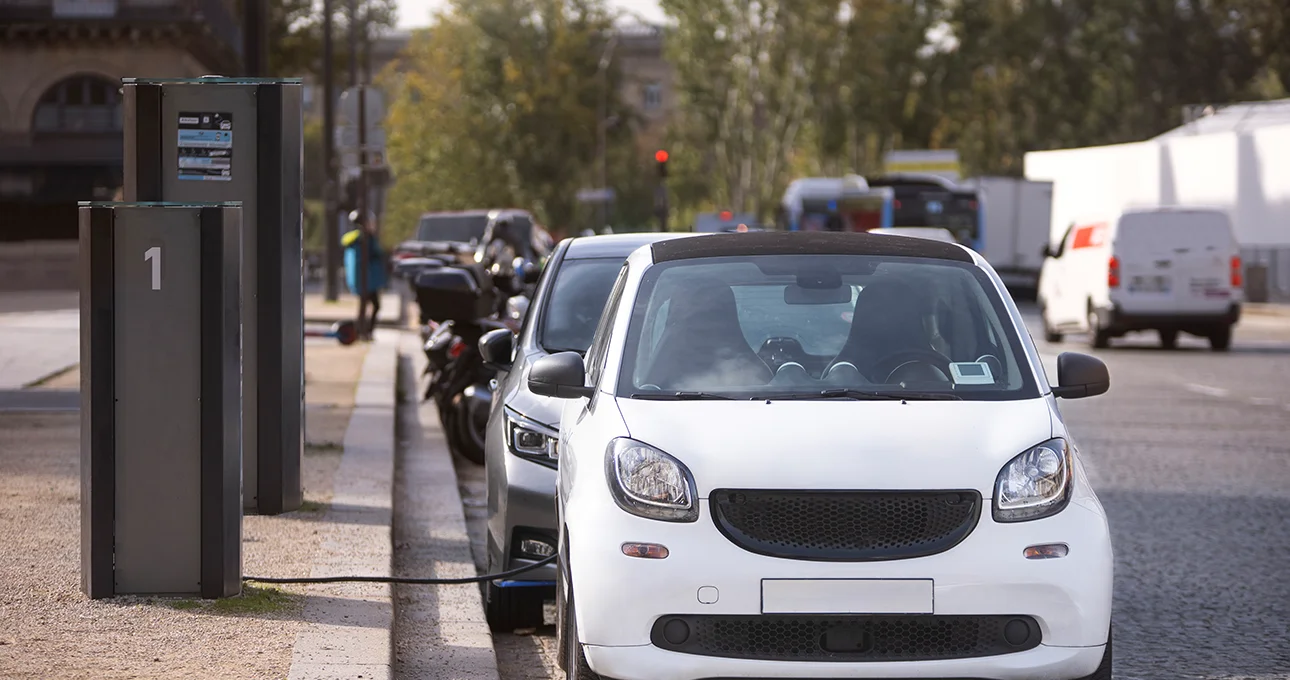In a world of fast-moving tech and unpredictable business landscapes, the electric vehicle (EV) and autonomous mobility sectors have become a microcosm of disruption and innovation. The past few months have been especially volatile for Tesla, the EV giant led by Elon Musk. From financial downturns to fresh competition, the company finds itself navigating through choppy waters.
As Tesla struggles to maintain its grip on the EV market, competitors like Volkswagen, Uber, and a new challenger—Jeff Bezos-backed Slate Auto—are stepping up with ambitious plans that could reshape the future of mobility. From robotaxi fleets to customizable EVs under $20,000, the industry is evolving rapidly, and Tesla is no longer the only name in the game.
Tesla Faces Tough Times Amid Political and Market Challenges
Elon Musk’s Tesla has always been at the forefront of innovation, but Q1 of 2025 brought with it a storm of challenges. Tesla’s stock plummeted by 36% between January and March, with vehicle sales dropping 20% and profits plunging by an alarming 71%. A significant portion of this downturn has been linked to Musk’s controversial political affiliations and policy experiments, particularly involving the Department of Government Efficiency (DOGE).
Despite the setbacks, Tesla continued its expansion plans, entering Saudi Arabia’s burgeoning EV market. However, the venture has been fraught with challenges, including inadequate EV infrastructure, fierce competition from Chinese manufacturers, and lingering tensions with the leadership of the kingdom’s sovereign wealth fund.
Meanwhile, Tesla’s ambitions to enter other Asian markets, such as India, are being hindered by a 100% import tariff on EVs. While India presents a promising opportunity, Tesla’s success there hinges on policy reforms or the possibility of setting up local manufacturing—a step competitors like VinFast have already taken.
VinFast Expands in India, Eyes Southeast Asia
While Tesla battles trade barriers, Vietnamese EV manufacturer VinFast is moving swiftly to capitalize on emerging markets. The company is set to open its assembly plant in Tamil Nadu, India, by the end of June 2025. VinFast also has plans to expand its footprint in Indonesia and the Philippines—strategic moves aimed at capturing market share in the fast-growing Southeast Asian EV landscape.
VinFast’s aggressive push into these markets poses a direct challenge to Tesla, which has yet to secure a significant foothold outside Western economies.
Volkswagen and Uber Team Up for a U.S. Robotaxi Rollout
In a significant blow to Tesla’s dominance in the autonomous vehicle space, German auto giant Volkswagen has joined forces with Uber Technologies to launch a fleet of fully electric, self-driving ID. Buzz AD vehicles across the United States.
The rollout will begin in Los Angeles in 2026, following extensive safety testing throughout 2025. The vehicles, based on the iconic VW Microbus design, will be equipped with advanced autonomous systems developed by Volkswagen’s mobility tech subsidiary, Volkswagen ADMT. MOIA, another VW-owned entity specializing in autonomous solutions, will provide the integrated software powering the fleet.
“This collaboration marks a significant milestone in the advancement of autonomous mobility,” said Dara Khosrowshahi, CEO of Uber. “We can’t wait to launch in Los Angeles late next year.”
Kjell Gruner, President and CEO of Volkswagen Group of America, echoed the sentiment, emphasizing the partnership as a transformative step in reimagining urban transport.
The joint effort aims to deploy thousands of robotaxis in the U.S. market over the next decade. The collaboration combines Volkswagen’s automotive expertise with Uber’s ride-hailing platform, creating a formidable competitor to Tesla’s robotaxi ambitions.
Volkswagen Doubles Down on EVs in China
Alongside its U.S. push, Volkswagen is also targeting dominance in the Chinese EV market. The company recently unveiled three new concept vehicles—ID. AURA, ID. ERA, and ID. EVO—tailored specifically for Chinese consumers. These models are part of VW’s broader plan to launch over 30 new electric and new energy vehicle (NEV) models in China by the end of 2027.
With China representing the world’s largest EV market, Volkswagen’s strategy could significantly enhance its global market share—and further complicate Tesla’s prospects in Asia.
Enter Slate Auto: Jeff Bezos-Backed EV Startup Disrupts the Market
While traditional automakers are leaning into partnerships and robotaxi programs, a new disruptor has entered the scene with a bold and unconventional approach. Backed by Amazon founder Jeff Bezos, Slate Auto is an EV startup that aims to redefine vehicle ownership and customization.
The company recently announced its debut EV model—a radically customizable electric truck with a projected base price below $20,000 (post federal tax credits). The vehicle is expected to hit the market by the end of 2026 and promises to offer unparalleled flexibility for buyers.
A Truck That Transforms Into an SUV
Slate’s electric vehicle is not just affordable—it’s modular. Buyers can transform it from a two-seater pickup to a five-seater SUV. Beyond the body style, nearly every element of the vehicle is customizable, including:
Paint (full or partial wraps)
Exterior decals and accents
Wheel and tire selections
Doors and windows
Dashboard configurations
Interior accessories
Tech and audio systems
Vehicle “Slatelets” (badges)
The company’s slogan, “We Built It. You Make It.” underscores this DIY ethos. Slate provides the blank canvas—users design the masterpiece.
Slate’s website allows prospective buyers to choose from 25 themed vehicle styles such as “Beach Bound,” “The Builder,” “Petal to the Metal,” and “The Stargazer.” Each serves as a template for users to customize further. The base model, aptly named “The Blank Slate,” offers a minimalist aesthetic that can be left untouched or reimagined entirely.
“Our goal is to eliminate clutter and boost usability. Whether you want to keep it basic or make it your own, we want customization to be easy—not expensive,” says the company.
The brand experience is also unique. Slate’s website mimics a retro racing game interface, allowing users to scroll through styles before picking or customizing one. It’s a fresh take on vehicle shopping and a likely appeal to Gen Z and Millennial buyers.
Waymo’s Next Move: Consumer-Owned Robotaxis?
Adding another layer of complexity to Tesla’s future, Alphabet-owned Waymo may soon allow individual ownership of its self-driving robotaxis. While details remain speculative, such a move would shift Waymo from a B2B service model to a consumer-focused retail operation—potentially eating into the same market Tesla hopes to dominate.
With robotaxi programs already operating in cities like San Francisco and Phoenix, Waymo has proven its technology’s maturity. Consumer adoption could happen sooner than expected, especially as regulatory hurdles continue to fall.
The Competitive Landscape: Tesla Is No Longer Alone
Tesla once stood nearly unchallenged in the electric and autonomous vehicle spaces. But 2025 marks a turning point.
Volkswagen + Uber are combining legacy auto with modern mobility platforms.
VinFast is grabbing market share in Asia at breakneck speed.
Slate Auto, with Bezos’ backing, could become the “IKEA of EVs” with affordable, user-designed vehicles.
Waymo is evolving from service provider to consumer automaker.
And then there’s Tesla, wrestling with political controversy, economic headwinds, and operational challenges. Musk’s recent pivot toward global expansion may not be enough to counter the domestic competition ramping up on every front—from affordability and adaptability to advanced autonomy.
Final Thoughts: Disruption Is the New Normal
The electric vehicle market is entering a phase of hyper-competition. Legacy automakers are reinventing themselves through strategic partnerships. New players like Slate Auto are democratizing vehicle customization. Ride-hailing giants are evolving into autonomous platform providers.
Meanwhile, Tesla finds itself caught in a web of regional tensions, economic turbulence, and escalating competition.
For consumers, this disruptive landscape offers exciting new choices—from budget-friendly EVs that reflect personal style to futuristic robotaxis that redefine urban mobility.
For Tesla, it’s a wake-up call. The road ahead may no longer be a straight path to dominance but rather a winding journey requiring reinvention, collaboration, and humility in the face of rising competition.






















